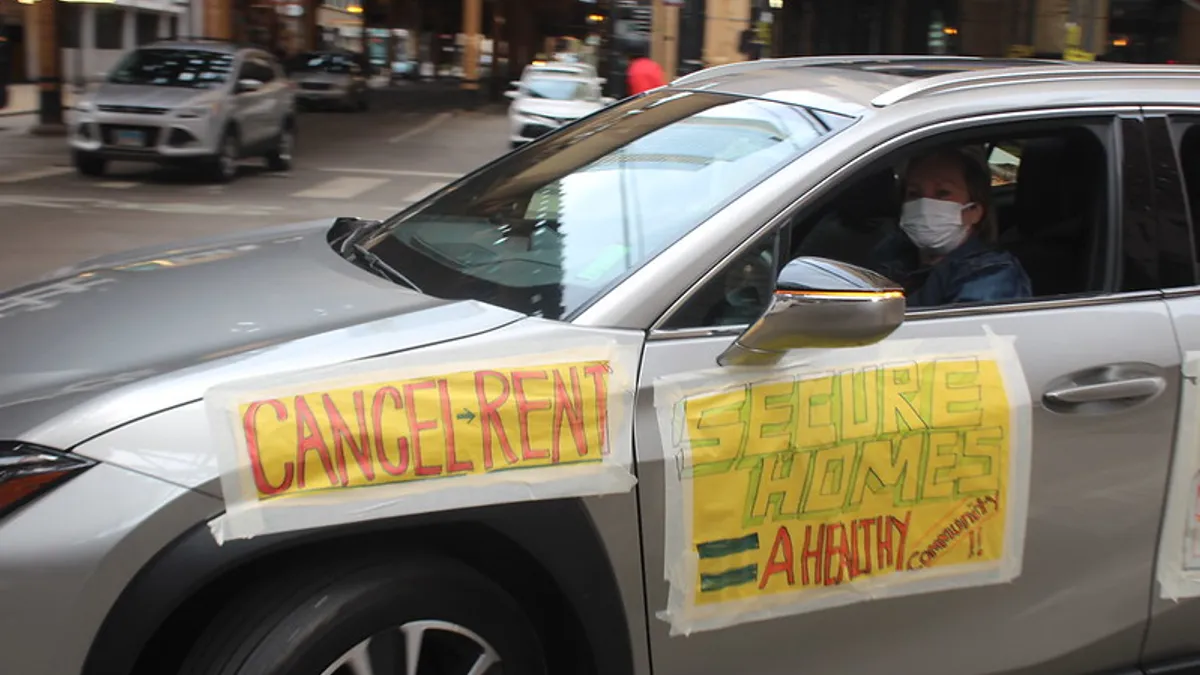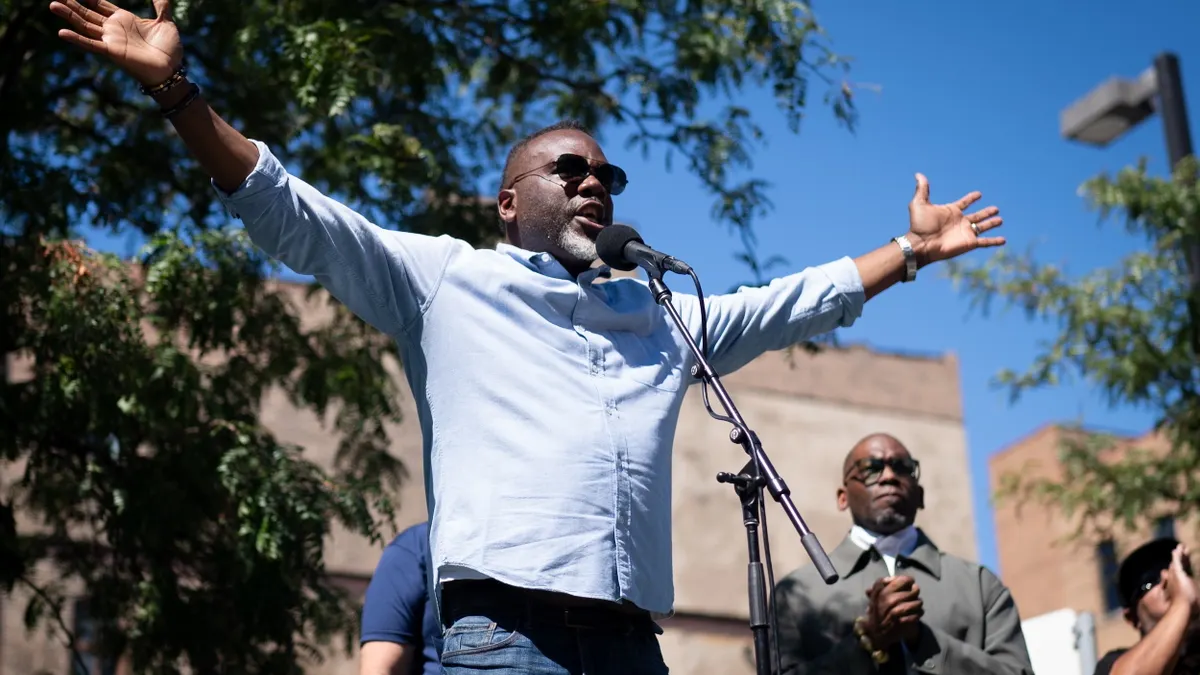The Biden administration set the stage for an equitable housing agenda during its initial days in office, but many challenges remain as the pandemic and its financial effect on renters and homeowners continues, experts say.
President Joe Biden signed an executive order on 'Day One' extending the federal eviction moratorium, which was set to expire, through March 31. His early efforts also included an executive order designed to advance racial equity, in part by addressing the opportunities to close racial gaps in housing, and an order for the U.S. Department of Housing and Urban Development to examine the effects of Trump-era housing rules on fair housing.
The administration’s initial flurry of actions offer a preview into how Biden and his team will proceed with its housing agenda over the next four years, with equity likely to be a central component.
The most recent eviction moratorium, which came near a time when up to 40 million renters were estimated to be at risk of losing their homes, is one such effort that still has some shortcomings, according to experts.
"We're concerned that the current approach is failing to address the scope of the damage in the housing sector and really isn't meeting the needs of renters and providers alike," said Paula Cino, vice president of construction, development and land use policy at the National Multifamily Housing Council. "The continued extension of a broad federal eviction moratorium is not aligning with the scale and the structure of rental assistance programs we're seeing emerge at the state and local level."
In December, Moody’s Analytics warned that almost 12 million renters would owe an average of $5,850 in back rent and utilities, the Washington Post reported. And communities of color have been disproportionately impacted, with Black and Latinx people representing 80% of the people facing eviction as of August, according to the National Low Income Housing Coalition.
The amount of rent that residents may accrue during this period is likely to be too great to ever be repaid, according to Cino. Renters and businesses could find themselves facing an "unrecoverable financial burden," Cino said.
As a result, advocacy groups like the Climate Justice Alliance have called on the government to cancel rent, mortgages and debt, and the National Multifamily Housing Council and National Apartment Association have called for greater federal investment.
Currently, $25 billion will be made available to renters across the country through federal funds directed to states. However, that $25 billion is "really just a down payment," according to Cino. "We know that there's continuing hardship out there, so that federal investment does need to be greater," Cino said.
There also needs to be sufficient focus on the deployment of those dollars, according to Cino, ensuring the funds are efficiently distributed and immediately pushed out by jurisdictions.
Despite its limitations, an eviction moratorium has played a hand in preventing an anticipated "tidal wave of evictions." Unemployment benefits, direct subsidies and stimulus checks have also helped people pay their rent and prevent evictions, according to Adrian Washington, CEO and founder of the Neighborhood Development Company, a real-estate developer and operator.
In fact, at least 1.6 million eviction filings are estimated to have been prevented due to the protections implemented across the country in 2020, according to Princeton University’s Eviction Lab.
However, eviction filings have still occurred. Landlords filed for more than 241,000 evictions during the pandemic among the five states and 27 cities tracked by Princeton University’s Eviction Lab. And 4,992 evictions were filed last week.
There were also a number of housing challenges before the pandemic, including a lack of affordable housing and the high cost of construction, according to Washington. The new administration needs to take a look at both what to address immediately while also addressing some of those long-standing issues, he said.
Biden’s administration is currently negotiating with GOP leaders on the next coronavirus stimulus package. Biden’s proposed $1.9 trillion package would include $30 billion for renters and small landlords, and extend the eviction and foreclosure moratorium through Sept. 30. The $600 billion GOP proposal appears to not include funds for rent relief, CNET reports.



















